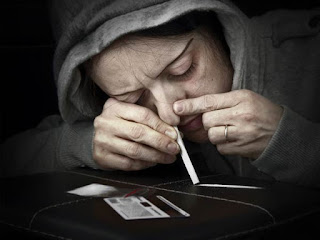SAY NO TO DRUGS, FEEL HOPEFUL
Addiction is a brain disease.
Compassion is a key to healing.
Any addiction in excess is always bad for health.
How can one get rid of drug addiction & lead a healthy-happy lifestyle?
- Taking small daily actions to improve lifestyle and work towards your goals, such as walking for 15 minutes, or signing up for a new class to keep yourself busy is the only way to move forward.
- Inner change – changing the way you think and deal with emotions – is what will truly lead to long-term recovery.
- Activities such as volunteering, exercising & attending classes are good options.
- Quit smoking, according to the National Institute on Drug Abuse (NIDA), suggests that they are more addicts who enter addiction treatment programmes & die from tobacco related issues than from the drug which initially pushed them to get treatment. If you are scared of relapsing while trying to quit smoking, or do not know how to quit, speak to a specialist – you do not have to do it alone.
- Spending quality time with family, friends & loved ones who understand what you have been through and are supportive of your new lifestyle.
- Diet and exercise are important in addiction recovery. Taking care of your overall physical health will lower your chances for relapse. A healthy mind and body go a long way in addiction recovery.
- Forgiving yourself and others can be a huge part of recovery. If you continue to hold on to resentments from the past, then your risk for relapse is high.
- Avoiding triggers by staying away from drug users or parties with drugs, or other situations that might lead to drug cravings.
- Protection from abuse or trauma.
- Changing your environment, getting enough rest, pamper yourself & spend time in nature, adopt a pet.
Recovery is about progression, not perfection.
Showing unconditional love & concern can help recover & inspire the drug addict to lead a healthy & happy life. If you as partner support and understand him/her no matter how severe their addiction is but you let them know that you still love & care about them. Let the person with the addiction know what you won't put up with, and don't be scared to set limits and follow through to show you aren't simply making empty threats or psychologically punishing them for their addictive behavior this would reconcile your relationship & would help the drug addict to recover.





